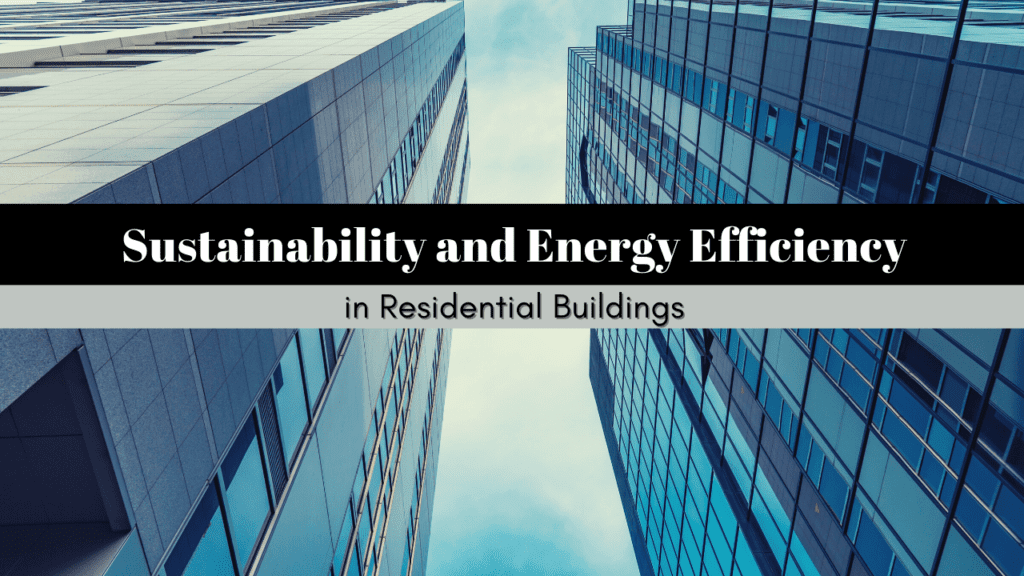
If your condo or co-op board isn’t talking about sustainability efforts and energy efficiency, now is the time to make it a priority.
New York City authorities will begin charging fines from buildings that are not in compliance with new environmental laws that are leading the city towards a zero-waste goal by the middle of this century. At Harlem Property Management, we’re helping buildings avoid those expensive fines by bringing them into compliance with all the new laws around energy usage and resource protection.
We are the authority on co-op and condo building management in Upper Manhattan and a member of the Real Estate Board of New York (REBNY). We specialize in managing condos, co-ops, and multifamily buildings, and here’s what we can tell you about NYC Local Laws related to sustainability and energy efficiency and what you need to be doing.
Local Law 97: Buildings Emissions Law
Local Law 97 was passed in 2019, and the requirements around this mandate will go into effect in 2024.
This law sets limits on the greenhouse gas emissions that your building produces. The goal is for New York City to meet its goal of a 40 percent reduction in greenhouse gas emissions from buildings by the year 2030, and 80 percent reduction in emissions citywide by 2050.
Your building must abide by this law if you have more than 25,000 square feet within your building. You’ll need to file a report with the Department of Buildings by May 1, 2025, detailing your annual greenhouse gas emissions for the previous year, and then by May 1 for every year after.
The report you submit to the city has to be certified by a registered design professional. If prescriptive measures are needed, a compliance plan and report will need to be submitted.
These deadlines are not so far away. The Department of Buildings does offer some guidance on how to comply with this law, and we can help you evaluate the options for retrofits and strategies. Every building is different, and you’ll need a specific plan for bringing your building into the range of emissions standards that the city is trying to reach.
You can expect huge penalties and fines if you miss a reporting deadline or if you fail to report at all.
What about the penalties for exceeding your emissions limits? Starting in 2025, owners who submit a report showing that their building’s emissions exceed what is allowed will be liable for a civil penalty equal to the difference between the building emissions limit for that timeframe and the reported building emissions for that year.
In addition to the civil penalties set forth in Local Law 97, the Buildings Department may also issue violations for non-compliance with the law.
The time to improve your building’s performance is now.
Local Law 87: Energy Audits & Retrofitting
According to Local Law 87, buildings that are over 50,000 square feet in size are required to undergo periodic energy audits and, if necessary, retrofitting measures.
Every 10 years, your building will need an energy audit. They’ve been optional for a while, in order to reduce energy costs and consumption, but not a lot of buildings have participated. Now that they are soon-to-be mandatory, you’ll have to make sure you’re prepared.
Your building will need to file an Energy Efficiency Report (EER) with the Department of Buildings that reflects two things:
- Information about your energy audit. The report will include all of your base building systems, including your HVAC, electrical, and lighting systems. You’ll need this audit to be performed by an authorized energy auditor. Your report will identify any and all measures and improvements that would result in energy use reductions and cost reductions. Your audit will demonstrate associated savings, the cost of implementing those changes, and what the payback period will look like.
- Information on retro-commissioning. This report will establish your project team, provide building information, and include resources on testing protocol. There will be a master list of findings as well as deficiencies corrected. The retro-commissioning has to be performed by an authorized retro-commissioner. The efficiency of your building systems will include evaluating and making recommendations about:
▪ Operating protocols
▪ Calibration and sequencing
▪ Cleaning
▪ Repairs
▪ Training and documentation
These are some comprehensive reports and retrofits that your building and its leadership will need to manage. If you’re wondering how to get started or catch up, reach out to us at Harlem Property Management right away.
Local Law 33 (Amended by Local Law 95)
New York City Local Law 33/95 requires buildings to conspicuously post their Energy Grade Label near each public entrance annually.
The Department of Buildings has been issuing violations over the last two years when buildings do not post their Energy Grade Labels. These labels demonstrate the grade that you’re receiving based on your
ENERGY STAR Score. Make sure you’ve posted yours. They’re available for download, and there’s no reason to risk a fine (which is at least $1,250) for not posting.
Federal efficiency standards are used to determine what your building’s grade is. The energy efficiency score uses the 1-100 ENERGY STAR®Score range that’s based on the Environmental Protection Agency (EPA) benchmarking standards.
Here’s what your building should be doing already:
- Submitting benchmarking data by May 1 each year.
- Downloading your energy efficiency grade from the Department of Buildings by October 1. ● Printing and displaying that grade label in a conspicuous location near each public entrance to your building within 30 days of October 1 every year.
 These laws and standards are no longer goals and objectives; they are requirements. You need to be actively complying with them in order to keep your building in compliance. We know that they can be overwhelming and feel bureaucratic. If you own a building or you’re on the board of an association that’s responsible for a residential building in Harlem, we can work with you to keep your building operating efficiently and compliant with all of the existing and upcoming laws and mandates.
These laws and standards are no longer goals and objectives; they are requirements. You need to be actively complying with them in order to keep your building in compliance. We know that they can be overwhelming and feel bureaucratic. If you own a building or you’re on the board of an association that’s responsible for a residential building in Harlem, we can work with you to keep your building operating efficiently and compliant with all of the existing and upcoming laws and mandates.
Contact us at Harlem Property Management.